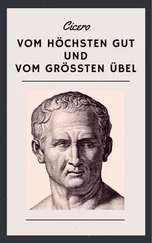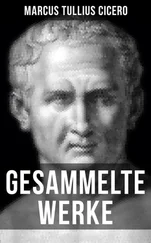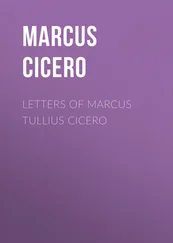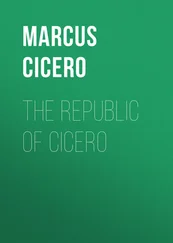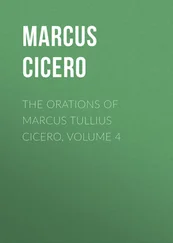Marcus Cicero - The Letters of Cicero, Volume 1
Здесь есть возможность читать онлайн «Marcus Cicero - The Letters of Cicero, Volume 1» — ознакомительный отрывок электронной книги совершенно бесплатно, а после прочтения отрывка купить полную версию. В некоторых случаях можно слушать аудио, скачать через торрент в формате fb2 и присутствует краткое содержание. Жанр: foreign_antique, Философия, foreign_edu, на английском языке. Описание произведения, (предисловие) а так же отзывы посетителей доступны на портале библиотеки ЛибКат.
- Название:The Letters of Cicero, Volume 1
- Автор:
- Жанр:
- Год:неизвестен
- ISBN:нет данных
- Рейтинг книги:4 / 5. Голосов: 1
-
Избранное:Добавить в избранное
- Отзывы:
-
Ваша оценка:
- 80
- 1
- 2
- 3
- 4
- 5
The Letters of Cicero, Volume 1: краткое содержание, описание и аннотация
Предлагаем к чтению аннотацию, описание, краткое содержание или предисловие (зависит от того, что написал сам автор книги «The Letters of Cicero, Volume 1»). Если вы не нашли необходимую информацию о книге — напишите в комментариях, мы постараемся отыскать её.
The Letters of Cicero, Volume 1 — читать онлайн ознакомительный отрывок
Ниже представлен текст книги, разбитый по страницам. Система сохранения места последней прочитанной страницы, позволяет с удобством читать онлайн бесплатно книгу «The Letters of Cicero, Volume 1», без необходимости каждый раз заново искать на чём Вы остановились. Поставьте закладку, и сможете в любой момент перейти на страницу, на которой закончили чтение.
Интервал:
Закладка:
After this, for two years, there is a break in the correspondence. Atticus had probably returned to Rome, and if there were letters to others (as no doubt there were) they have been lost. A certain light is thrown on the proceedings of the year of candidature (b.c. 64) by the essay "On the duties of a candidate," ascribed to his brother Quintus, who was himself to be a candidate for the prætorship in the next year (b.c. 63). We may see from this essay that Pompey was still regarded as the greatest and most influential man at Rome; that Catiline's character was so atrocious in the eyes of most, that his opposition was not to be feared; that Cicero's "newness" was a really formidable bar to his election, and that his chief support was to be looked for from the individuals and companies for whom he had acted as counsel, and who hoped to secure his services in the future. The support of the nobles was not a certainty. There had been a taint of popularity in some of Cicero's utterances, and the writer urges him to convince the consulars that he was at one with the Optimates, while at the same time aiming at the conciliation of the equestrian order. This was, in fact, to be Cicero's political position in the future. The party of the Optimates—in spite of his disgust at the indifference and frivolity of many of them—was to be his party: his favourite constitutional object was to be to keep the equites and the senate on good terms: and his greatest embarrassment was how to reconcile this position with his personal loyalty to Pompey, and his views as to the reforms necessary in the government of the provinces.
The Consulship, b.c. 63.
For the momentous year of the consulship we have no letters. His brother Quintus was in Rome as candidate and then prætor-designate; Atticus was also in Rome; and the business, as well as the dignity of a consul, were against anything like ordinary correspondence. Of the earlier part of the consulship we have little record. The speeches against Rullus were delivered at the beginning of the year, and commit Cicero pretty definitely to a policy as to the ager publicus —which was, to his disgust, entirely reversed by the triumvirs in b.c. 59—but they do not shew any sense of coming trouble. Cicero, however, throughout his consulship took a very definite line against the populares . Not only did he defend Rabirius Postumus, when accused by Cæsar of the assassination of Saturninus, and address the people against offering violence to L. Roscius on account of the unpopular lex theatralis , 6 6 See Att. ii. 1 , vol. i., p. 62 ; Plut. Cic. 13; Cic. in Pis. § 4.
but he even resisted the restoration to their civil rights of the sons of the men proscribed by Sulla, avowedly on the ground of the necessity of maintaining the established order, though he knew and confessed the justice of the proposal. 7 7 See Att. ii. 1 , vol. i., p. 62 ; Plut. Cic. 13; Cic. in Pis. § 4.
The Conspiracy of Catiline.
Any movement, therefore, on the side of the popular party had now his opposition with which to reckon. He professes to have known very early in his year of office that some more than usually dangerous movement was in contemplation. We cannot well decide from the violent denunciation of Catiline contained—to judge from extant fragments—in the speech in toga candida , how far Cicero was really acquainted with any definite designs of his. Roman orators indulged in a violence of language so alien from modern ideas and habits, that it is difficult to draw definite conclusions. But it appears from Sallust that Catiline had in a secret meeting before the elections of b.c. 64, professed an intention of going all lengths in a revolutionary programme and, if that was the case, Cicero would be sure to have had some secret information on the subject. But his hands were partly tied by the fact that the comitia had given him a colleague—C. Antonius—deeply implicated in Catiline's policy, whatever it was. Pompey, whom he regarded as the champion of law and order, was in the East: and Catiline's candidature—and it was supposed his policy also—had had the almost open support of the richest man in Rome, M. Licinius Crassus, and of the most influential man of the populares , C. Iulius Cæsar. In the house of one or the other of them, indeed, the meeting at which Catiline first unfolded his purposes was believed to have been held. Still Catiline had not been guilty of any overt act which enabled Cicero to attack him. He had, indeed, been informed, on very questionable authority, that Catiline had made a plot to assassinate him while holding the elections, and he made a considerable parade of taking precautions for his safety—letting it be seen that he wore a cuirass under his toga, and causing his house to be guarded by the younger members of his party. The elections, according to Plutarch, had at least been once postponed from the ordinary time in July, though this has been denied. 8 8 Die Entstchungsgeschichte der catilinarischen Verschwörung , by Dr. Constantin John, 1876. I am still of opinion that Plutarch's statement can be strongly supported.
At any rate it was not till they had taken place and Catiline had been once more rejected, that any definite step is alleged to have been taken by him, such as Cicero could lay hold of to attack him. On the 20th of October, in the senate, Cicero made a speech warning the Fathers of the impending danger, and on the 21st called upon Catiline for an explanation in their presence. But, after all, even the famous meeting of the 5th of November, in the house of M. Porcius Læca, betrayed to Cicero by Fulvia, the mistress of Q. Curius, would not have sufficed as grounds for the denunciation of the first extant speech against Catiline (7th of November), if it had not been for something else. For some months past there had been rumours of risings in various parts of Italy; but by the beginning of November it was known that C. Manlius (or Mallius) had collected a band of desperadoes near Fæsulæ, and, having established there a camp on the 27th of October, meant to advance on Rome. Manlius had been a centurion in Sulla's army, and had received an allotment of confiscated land in Etruria; but, like others, had failed to prosper. The movement was one born of discontent with embarrassments which were mostly brought about by extravagance or incompetence. But the rapidity with which Manlius was able to gather a formidable force round him seems to shew that there were genuine grievances also affecting the agricultural classes in Etruria generally. At any rate there was now no doubt that a formidable disturbance was brewing; the senate voted that there was a tumultus , authorized the raising of troops, and named commanders in the several districts affected. It was complicity in this rising that Cicero now sought to establish against Catiline and his partisans in Rome. The report of the meeting in the house of Læca gave him the pretext for his first step—a fiery denunciation of Catiline in the senate on the 7th of November. Catiline left Rome, joined the camp of Manlius, and assumed the ensigns of imperium . That he was allowed thus to leave the city is a proof that Cicero had as yet no information enabling him to act at once. It was the right of every citizen to avoid standing a trial by going into exile. Catiline was now under notice of prosecution for vis , and when leaving Rome he professed to be going to Marseilles, which had the ius exilii . But when it was known that he had stopped short at Fæsulæ, the senate at once declared both him and Manlius hostes , and authorized the consuls to proceed against them. The expedition was intrusted to Antonius, in spite of his known sympathy with Catiline, while Cicero was retained with special powers to protect the city. The result is too well known to be more than glanced at here. Catiline's partisans were detected by letters confided to certain envoys of the Allobroges, which were held to convict them of the guilt of treason, as instigating Catiline to march on Rome, and the senate of the Allobroges to assist the invasion by sending cavalry to Fæsulæ.
Интервал:
Закладка:
Похожие книги на «The Letters of Cicero, Volume 1»
Представляем Вашему вниманию похожие книги на «The Letters of Cicero, Volume 1» списком для выбора. Мы отобрали схожую по названию и смыслу литературу в надежде предоставить читателям больше вариантов отыскать новые, интересные, ещё непрочитанные произведения.
Обсуждение, отзывы о книге «The Letters of Cicero, Volume 1» и просто собственные мнения читателей. Оставьте ваши комментарии, напишите, что Вы думаете о произведении, его смысле или главных героях. Укажите что конкретно понравилось, а что нет, и почему Вы так считаете.

